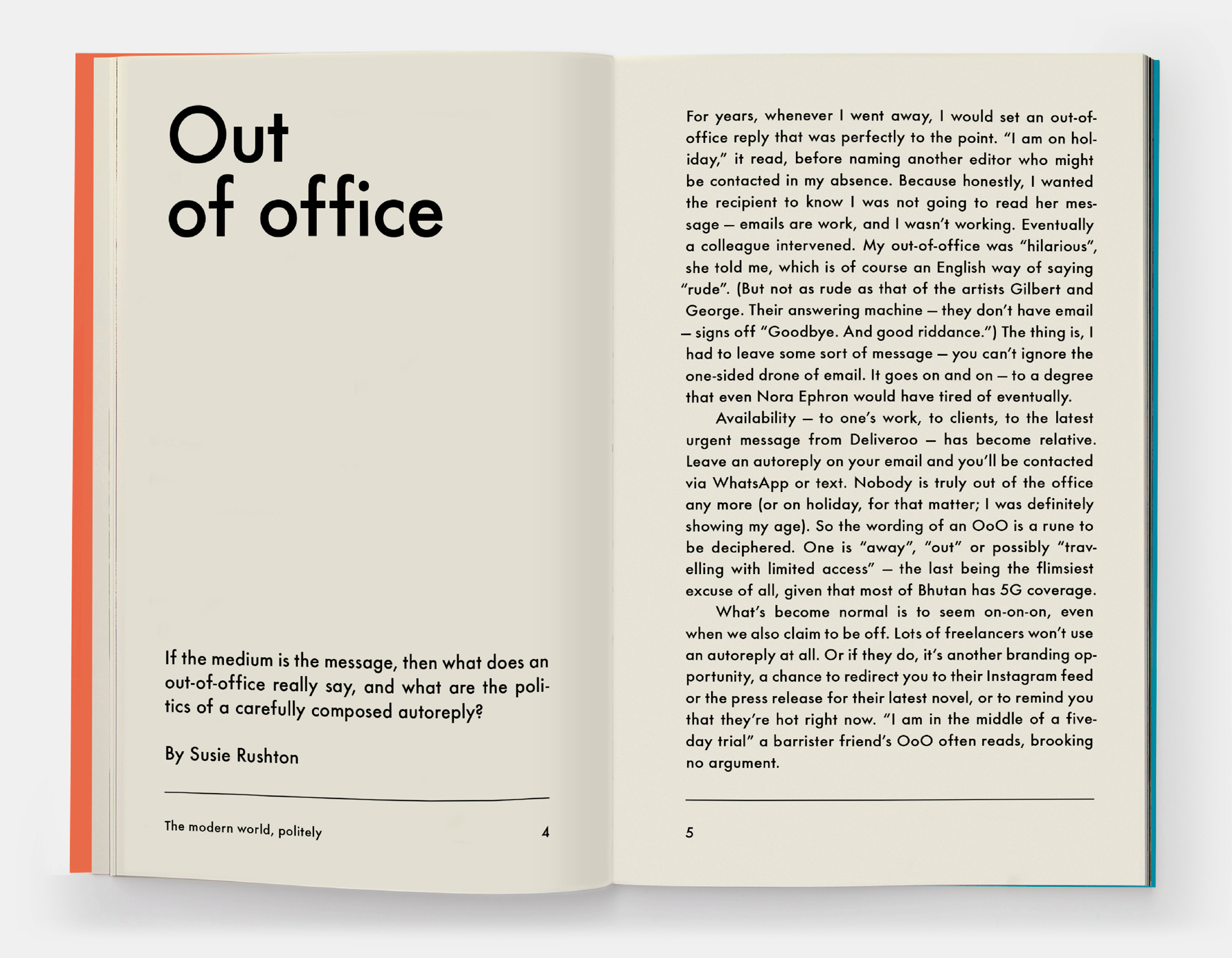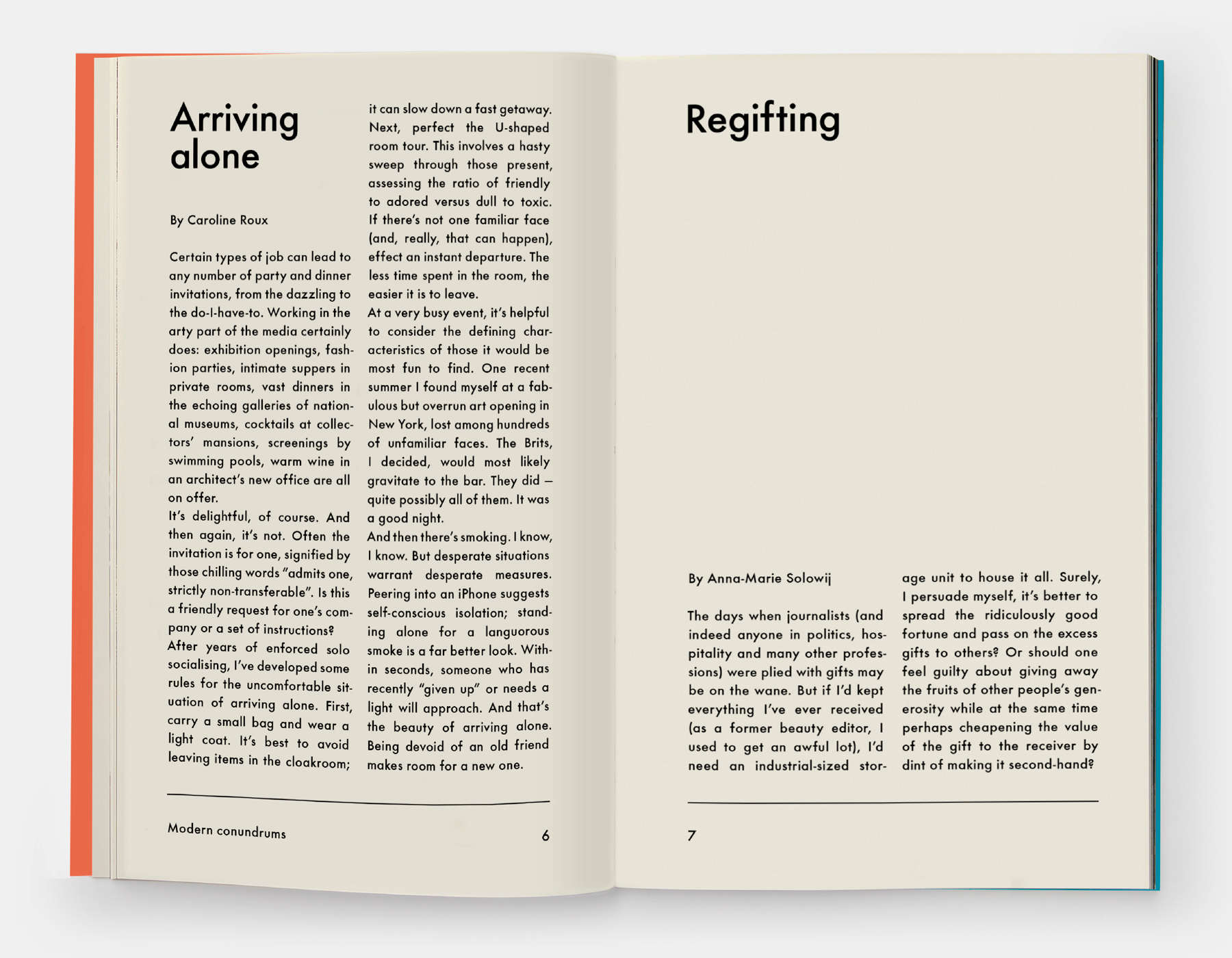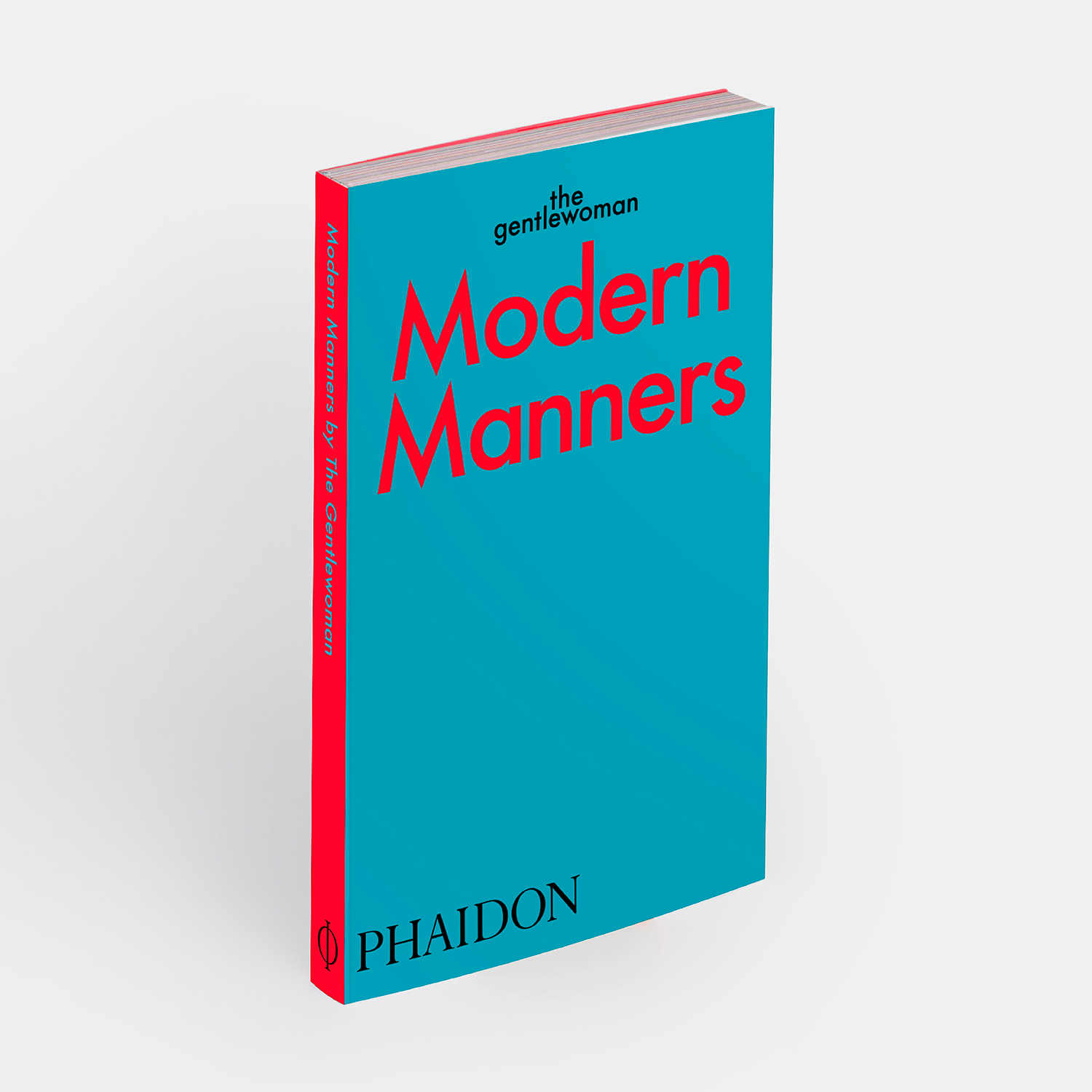
Modern Manners and work
Our new collection of essays from The Gentlewoman includes quite a few timely pieces of advice for the workplace
Why does careers advice tend to begin and end with landing that first job after college? After all, many of us continue to negotiate throughout our careers the challenges of work, pay, office politics, and - post-WFH - even the commute across town.
And often, until now, we've done all this throughout our careers, with little more than an employee manual for guidance.
So to that small library we would like to add something really worth reading - Modern Manners: Instructions for living fabulously well.
This new book is a stellar collection of articles drawn from the fabulous women’s magazine, The Gentlewoman. Featuring contributions from among others: The New Yorker’s Lauren Collins, the Observer columnist Eva Wiseman, and the magazine’s editor, Penny Martin, Modern Manners covers everything from tailoring to telephone etiquette; god-parenting to postcards.
And in among all this instructive prose is a fair amount of good guidance for the gainfully employed. Take, for example, Vogue contribtuor Susie Rushton’s meditation on the best way to compose an out-of-office response. After much deliberation, Rushton singles out the film star Tilda Swinton’s O-o-O text for praise: ‘Hello, I am away until 01/01/2070 and am unable to read your message.’
“Is Swinton heading out to orbit Mars? Cryogenically unavailable until further notice? Or was this just a key misstroke? I wondered via email,” writes Rushton. “She emails back, after a slight delay, to explain: ‘I looked at the email traffic and thought I should set a date by which I honestly thought I might be able to get back to everybody’.”

The Art Newspaper’s Caroline Roux contributes a similar take on appointment diaries. After despairing with her own smartphone calendar she opted for a the low-tech option of an old-style paper diary. “Unlike my digital diary, which I thought would solve all life’s problems instead of creating more, I regard my paper one purely as an aide-memoire,” she reasons. “But in reality, it’s already become something much more colourful — a treasure trove of phone numbers and other incidentals scribbled in the blank pages at back and front along with the odd doodle.”
Podcaster Ann Friedman counsels against overwhelming oneself with work commitments. In her essay, How to be Idle, she argues for the active inclusion of inactiviity. “There will always be unread emails, unchecked items on the to-do list, un-returned phone calls, non-negotiable social obligations,” she writes.
“Like time itself, forces of busyness are unceasing. The goal is not to work until there are no such demands and then enjoy a well-earned rest. Idleness must be added to the to-do list, etched into the diary. It must be valued and prioritised in such a way that a year is considered a disappointment if it has passed without a period of doing nothing, or an achievement is considered incomplete if it is not followed by at least the briefest of voids.”
Though, of course, you should prepare for the chance that the working might be fun. Take for example, the New York Times design critic Alice Rawsthorn, who recalls, in an ensemble piece, her first job. “In sixth form, I was a Saturday girl at Boots (a UK pharmacy) in Braintree, Essex,” she explains “We had fun blowing up condoms for stockroom balloon fights.”

That certainly isn’t the kind of thing you’ll learn about from your careers advisor. To read more from these great writers and many others, order a copy Modern Manners here.